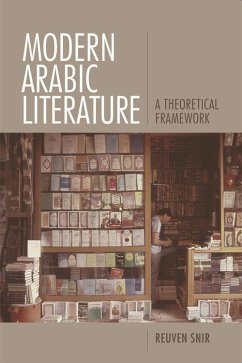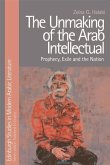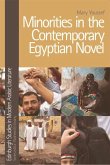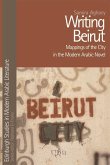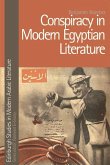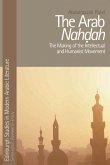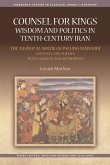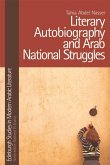'Reuven Snir provides his readers with a wealth of theoretical and applied information that takes in the entire modern tradition of Arabic literary creativity. It is an amazing achievement, well arranged and comprehensively documented . . . The study demonstrates an enviable knowledge of the relevant theoretical and critical literature in both Western and Arab-world sources . . . I know of no work currently available that aspires to take on a subject this broad, and that does so with such conspicuous success and insight.' Roger Allen, the University of Pennsylvania Outlines a theoretical operative framework for the study of modern Arabic literature The study of Arabic literature is blossoming. This book provides a comprehensive theoretical framework to help research this highly prolific and diverse production of contemporary literary texts. Based on the achievements of historical poetics, in particular those of Russian formalism and its theoretical legacy, this framework offers flexible, transparent and unbiased tools to understand the relevant contexts within the literary system. The aim is to enhance our understanding of Arabic literature, throw light on areas of literary production that traditionally have been neglected, and stimulate others to take up the fascinating challenge of mapping out and exploring them. Key Features - Includes inventories of both canonised and non-canonised literary texts in three sections: texts for adults, texts for children and translated texts for adults and children - Looks at the historical diachronic interaction of literature with various extra-literary systems such as religion, territory, state nationalism, language, politics, economy and gender, as well as foreign literatures and cultures - Focuses on the study of each genre together with examining the relationships between the various genres and the role of translation in their development - Highlights the concept of periodisation, looking at how to delimit and define literary periods - Conceptualises sociocultural distinctions of text production in terms of literary stratification, avoiding evaluative judgements Reuven Snir is Professor of Arabic Literature and Dean of Humanities at the University of Haifa. He has published many books, articles, translations and encyclopdia entries in various languages. Among his latest books in English are Who Needs Arab-Jewish Identity? (2015) and Baghdad: The City in Verse (2013). Cover image: Cover design: [EUP logo] edinburghuniversitypress.com ISBN Barcode
Hinweis: Dieser Artikel kann nur an eine deutsche Lieferadresse ausgeliefert werden.
Hinweis: Dieser Artikel kann nur an eine deutsche Lieferadresse ausgeliefert werden.

